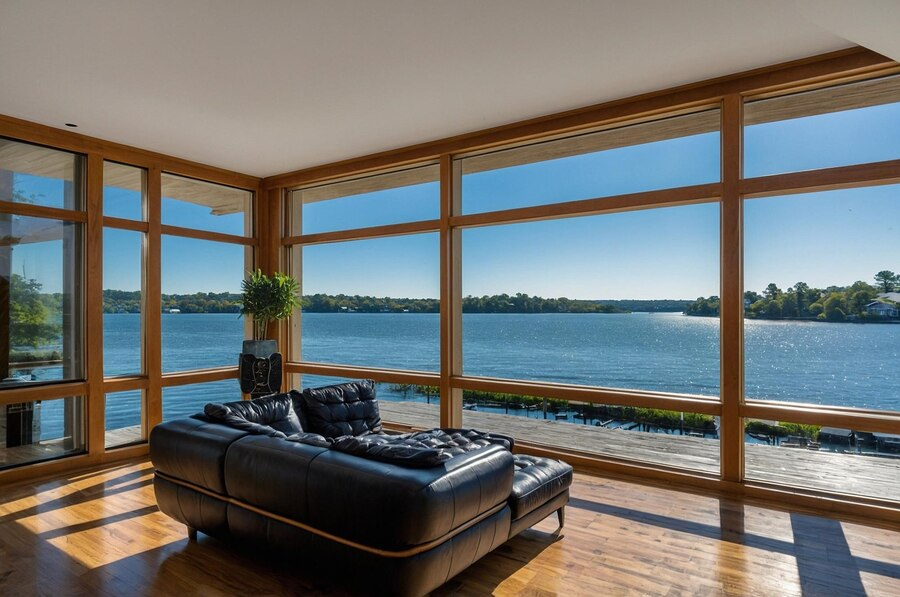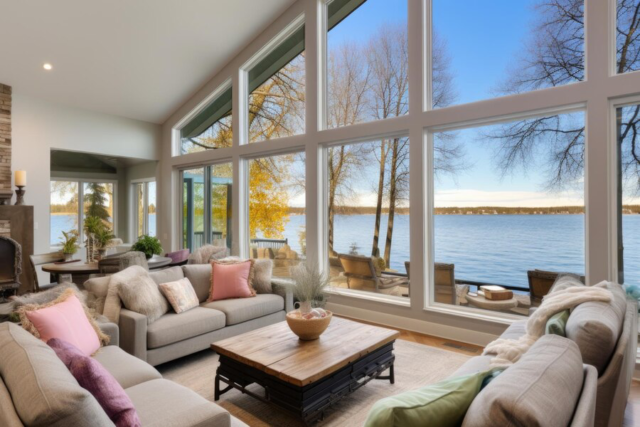
Window Replacement: Cost Factors You Should Consider
What Influences the Price of New Windows for Your Home?
Replacing windows in your home isn’t just a practical decision; it’s a significant financial investment that can influence both your home’s value and comfort. Whether you’re aiming to improve energy efficiency, enhance curb appeal, or update aging windows, understanding the various cost factors involved is crucial. This guide will delve into the many aspects of window replacement costs, from choosing the right type of windows and materials to factoring in installation expenses and potential hidden costs. By breaking down these elements, we aim to help you navigate your options more effectively, ensuring you make a well-informed choice that aligns with both your budget and your home improvement goals.
- Understanding the Basics of Window Replacement
- Understanding Installation Costs for Window Replacement
- Additional Costs and Considerations
- Financing Options
- DIY vs. Professional Installation
- Tips for Saving Money on Window Replacement
- Financing Your Window Replacement Project: What Are Your Options?
- Conclusion
Understanding the Basics of Window Replacement
Understanding the basics of window replacement is crucial before embarking on your project. At its core, window replacement involves removing old, possibly inefficient windows and installing new ones to improve functionality, aesthetics, or energy efficiency. The process can vary significantly based on the type of windows being installed, their size, and whether any structural changes are required. Standard replacements might involve minimal adjustments, while custom or high-efficiency windows could necessitate more extensive modifications to your home’s structure.
Additionally, window replacement isn’t just about swapping out panes. It encompasses evaluating frame materials, considering insulation options, and ensuring proper installation to avoid issues like drafts or leaks. This comprehensive approach ensures that the new windows not only fit well but also contribute to long-term savings and comfort in your home.
Understanding Installation Costs for Window Replacement
Understanding installation costs for window replacement is essential for accurate budgeting. The complexity of the installation can significantly impact the final price. Simple replacements, where new windows fit into existing frames, tend to be less expensive. However, if your project involves resizing openings, addressing structural issues, or installing custom windows, the cost will increase. Installation complexity also includes factors like the need for special equipment to reach high or difficult areas, which can further drive up costs.
Labor rates are another key factor, varying by region and contractor. On average, installation costs can range from $100 to $300 per window. To ensure you’re getting a fair deal, request detailed quotes and verify what is included, such as removal of old windows and any additional trim work.
Additional Costs and Considerations
When budgeting for window replacement, consider the following additional costs:
Removal and Disposal
Removing old windows and disposing of them can add to the overall expense. Some contractors include this in their quotes, while others may charge extra. Removal costs typically range from $50 to $150 per window.
Trim and Finishing
If you’re replacing windows, you may also need to update the trim and finishing around the new windows. This can add another $100 to $300 per window.
Permits and Inspections
Depending on your location, you may need permits for window replacement, which can add to the cost. Permits typically cost between $50 and $200, and some areas may require inspections after installation.
Energy Efficiency Upgrades
Upgrading to energy-efficient windows may involve higher upfront costs but can result in long-term savings on your energy bills. Look for windows with the ENERGY STAR® label or those with Low-E coatings.
Warranty and Service Plans
Consider the warranty and service plans offered by the manufacturer and installer. While they may add to the initial cost, they can provide peace of mind and protect you from future expenses related to defects or issues.

Financing Options
When it comes to financing your window replacement project, there are several options to consider to make the investment more manageable. Home improvement loans are specifically designed for such upgrades and often come with favorable terms. Home equity loans or lines of credit allow you to borrow against the value of your home, typically offering lower interest rates. Both options can provide substantial funds but require your home as collateral.
Alternatively, credit cards can offer a quick and convenient way to finance, though they may come with higher interest rates. Some window manufacturers also offer financing plans or promotional offers that can make upfront costs more affordable. It’s important to compare these options and choose the one that aligns best with your financial situation and long-term goals.
DIY vs. Professional Installation
While DIY projects can be cost-effective, window replacement is often best left to professionals. Here’s why:
- Expertise and Experience: Professional installers have the expertise and experience to handle complex installations and ensure a proper fit, which can prevent costly mistakes.
- Quality of Work: A professional installation can ensure that the windows are properly sealed and insulated, which is crucial for energy efficiency and preventing leaks.
- Warranty Protection: Many manufacturers require professional installation to honor warranties. DIY installation could void the warranty and lead to additional expenses if issues arise.
- Time and Effort: Window replacement can be time-consuming and physically demanding. Hiring a professional saves you time and effort, allowing you to focus on other aspects of your home improvement project.
Tips for Saving Money on Window Replacement
Saving money on window replacement doesn’t mean compromising on quality; it involves smart planning and decision-making. Start by obtaining multiple quotes from different contractors to ensure you’re getting the best price and service. Look for opportunities to save on materials by opting for standard-sized windows, which are generally more affordable than custom designs. Additionally, consider scheduling your project during off-peak times when contractors might offer discounts or lower rates due to decreased demand.
Another way to save is by exploring energy-efficient window options, which, despite a higher initial cost, can lead to significant savings on your energy bills over time. Finally, keep an eye out for rebates or incentives from utility companies and government programs that can offset some of the costs.
Financing Your Window Replacement Project: What Are Your Options?
When financing your window replacement project, several options can help you manage the expense effectively. Home improvement loans are specifically tailored for such upgrades, offering competitive interest rates and flexible repayment terms. Alternatively, home equity loans or lines of credit allow you to borrow against the value of your home, often providing lower rates but requiring collateral. These options are ideal for substantial projects, as they can offer larger amounts of funds.
For smaller budgets, credit cards can provide immediate financing, though they typically come with higher interest rates. Additionally, many window manufacturers offer their own financing plans or promotional offers, which can make the initial cost more affordable. It’s essential to compare these options to find the best fit for your financial situation and long-term goals.
Conclusion
Replacing windows is a significant investment, and understanding the cost factors involved can lead to better decision-making. From choosing the right window type and frame material to considering installation complexity and additional costs, every detail impacts the final price. For expert advice and a free quote, contact EZ Window Solutions of Youngstown at +13303336295. Making an informed choice will ensure that the window replacement project enhances both the value and comfort of your home.


Write a Comment